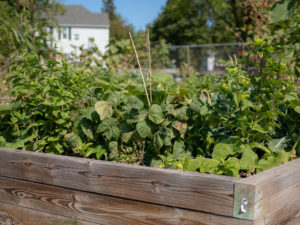Provide Compost Options
Currently, the United States leads the world in food waste. The EPA estimated that 40.7 million tons of food waste was generated in 2017 alone. Composting is a great approach for businesses to save valuable resources, divert more waste from landfills, and reduce waste costs overall. Businesses can compost their organics to create nutrient-rich, healthy soil that businesses can use for their own agricultural purposes or donate to another business or local organization such as a community garden. Adding composting to a waste management strategy could provide financial benefits as well as supporting a businesses’ waste reduction and zero waste goals.
ENVIRONMENTAL BENEFITS
When materials are composted, it adds nutrients and organic material back to soil, reduces our reliance on synthetic fertilizers, diverts methane-producing organic material from landfill, and improves the soil’s water retention capacity.
BUSINESS BENEFITS
Businesses that throw away a lot of food likely have large and heavy waste containers. Composting allows businesses to divert waste from these heavy containers, oftentimes reducing waste pickup frequency and ensuring a significant amount of money on waste costs.
Get free assistance from WLSSD for recycling food waste from your business here.
Did you take this action? Report it!
Help us show our collective community impact by reporting that you took this action.
